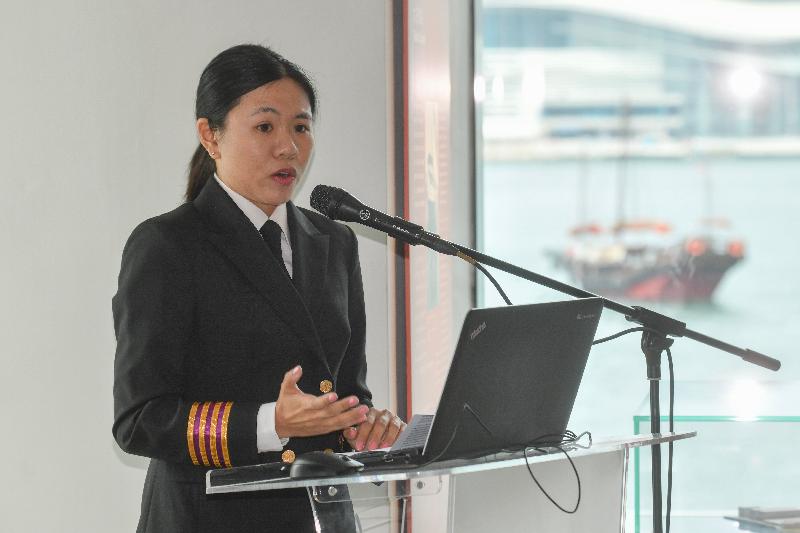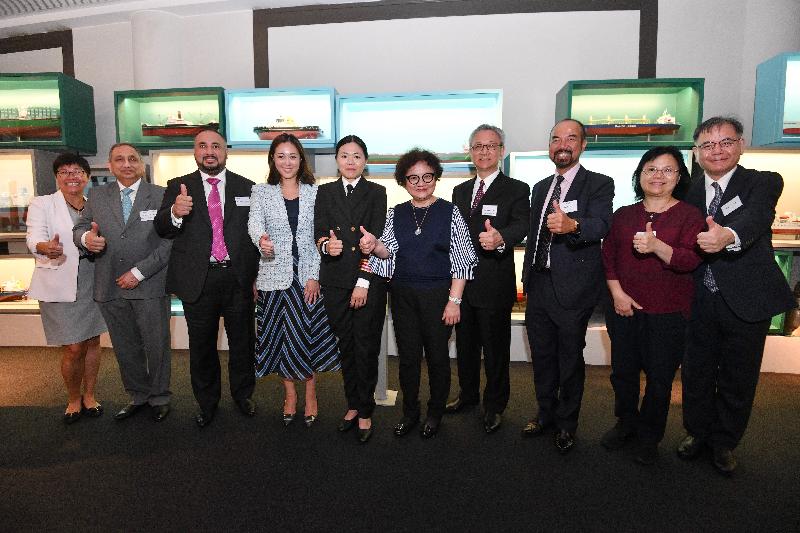Hong Kong and Qatar sign MOU on investment promotion co-operation (with photo)
​Invest Hong Kong (InvestHK) and the Qatar Financial Centre Authority of the Qatar Financial Centre of the State of Qatar today (July 9) signed a Memorandum of Understanding (MOU) pledging mutual co-operation on investment promotion exchange and support.
The MOU was signed by the Director-General of Investment Promotion at InvestHK, Mr Stephen Phillips, and the Managing Director of Business Development of the Qatar Financial Centre Authority, Ms Sheikha Alanoud Bint Hamad Al-Thani, in the presence of the Associate Director-General of Investment Promotion, Mr Vincent Tang, and the Consul General of the State of Qatar in Hong Kong, Mr Mohammed Sultan Al Kuwari.
Mr Phillips said, "The signing of the MOU today signifies an important milestone for Hong Kong and Qatar in terms of mutual investment promotion co-operation. The MOU offers a basis for both parties to enhance the existing ties beneficial to attracting foreign direct investment to each other's jurisdictions. Towards this end, InvestHK will continue to work closely with the Qatar Financial Centre over future investment promotion work."
Ms Al-Thani said, "The Qatar Financial Centre is delighted to sign a MoU with InvestHK. This agreement is yet another indication of our commitment to the Asian market, and will undoubtedly enable the Qatar Financial Centre to further broaden its capacity to create even more business opportunities for organisations in Qatar and Hong Kong, while paving the way for more avenues for collaboration. By leveraging the expertise, network and capabilities of both our institutions, I am confident that we will create multiple opportunities for business growth and long-term economic prosperity."
The MOU provides a framework to enhance the close relationship for the mutual benefit of the Hong Kong Special Administrative Region (HKSAR) and Qatar and their co-operation with each other in promoting both inward and outward investment in the two jurisdictions. According to the MOU, both sides will share information and experiences in investment promotion, encourage interested local companies to set up or expand their business within the area of the other jurisdictions, and support each other's investment promotion events that foster bilateral investment between the two jurisdictions.
About InvestHK
InvestHK is the department of the HKSAR Government responsible for attracting foreign direct investment and supporting overseas and Mainland businesses to set up or expand in Hong Kong. It provides free advice and customised services for overseas and Mainland companies. For more information, please visit www.investhk.gov.hk.
About the Qatar Financial Centre
The Qatar Financial Centre is an onshore business and financial centre located in Doha, providing an excellent platform for firms to do business in Qatar and the region. The Qatar Financial Centre offers its own legal, regulatory, tax and business environment, which allows 100 per cent foreign ownership and 100 per cent repatriation of profits, and charges a competitive rate of 10 per cent corporate tax on locally sourced profits. For more information, please visit www.qfc.qa.



